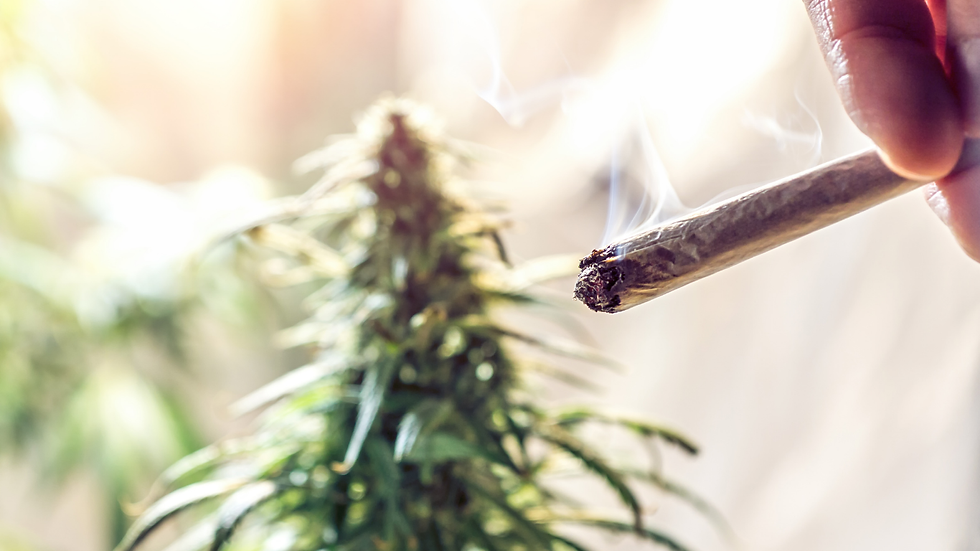The 2018 Farm Bill Explained in 3 Minutes
- Coastal Calm

- Oct 28, 2025
- 3 min read

You’ve probably seen hemp products everywhere lately, from CBD oils to THCA flower. But what made this legal shift possible? It all goes back to the 2018 Farm Bill, a landmark piece of U.S. legislation that redefined hemp and changed the future of cannabis nationwide.
Here’s the 2018 Farm Bill explained in just 3 minutes.
1. What Is the 2018 Farm Bill?
The Agricultural Improvement Act of 2018, better known as the 2018 Farm Bill, is federal legislation signed into law on December 20, 2018 (Congress.gov).
For the first time, hemp was separated from marijuana in U.S. law. This was a major step for the cannabis industry and opened the door to products like CBD, CBG, and THCA flower.
2. Hemp vs. Marijuana: The Legal Definition
The Farm Bill defined hemp as:
“Cannabis sativa L. and any part of that plant, including seeds, derivatives, and extracts, with a Delta-9 THC concentration of not more than 0.3% on a dry weight basis.”
👉 Key takeaway: As long as Delta-9 THC is below 0.3%, hemp products are federally legal. This definition created a clear dividing line between hemp (legal) and marijuana (still federally illegal).
3. Why the 0.3% Rule Matters
The 0.3% Delta-9 THC limit is the magic number that determines legality.
If a hemp flower tests at 0.29% Delta-9 THC → it’s federally legal.
If it tests at 0.31% Delta-9 THC → it’s considered marijuana under federal law.
This tiny difference is why Certificates of Analysis (COAs) and lab testing are so important.
4. How It Changed the Industry
The 2018 Farm Bill:
🌱 Legalized hemp farming nationwide (with state oversight).
💊 Unlocked the CBD market, now projected to reach $7.8 billion by 2030 (Grand View Research).
🧪 Sparked innovation in minor cannabinoids like CBG, CBN, and THCA.
🚚 Allowed interstate commerce of hemp products, making online hemp sales possible.
5. The Gray Area: THCA
Here’s where things get tricky. The law measures only Delta-9 THC, not THCA.
Raw hemp flower can be high in THCA but still compliant if Delta-9 THC is under 0.3%.
Once heated, THCA converts into Delta-9 THC (psychoactive).
Some states now calculate “Total THC” (Delta-9 + THCA × 0.877) to close this loophole.
That’s why laws vary by state, and compliance is essential.

6. FAQs
Q: Is hemp federally legal in all 50 states?
A: Yes, under the 2018 Farm Bill — but individual states may set stricter rules. Always check your local regulations.
Q: Does the Farm Bill make marijuana legal?
A: No. Marijuana is still federally classified as a Schedule I drug under the Controlled Substances Act.
Q: Is THCA legal under the Farm Bill?
A: Federally, yes, if Delta-9 THC is below 0.3%. Some states regulate THCA more strictly by using total THC calculations.

7. Conclusion
The 2018 Farm Bill reshaped the U.S. cannabis landscape. It legalized hemp nationwide, set the 0.3% Delta-9 THC threshold, and paved the way for today’s booming CBD and THCA markets.
At Coastal Calm, every product we sell follows strict Farm Bill compliance with third-party lab reports and QR codes, so you know exactly what you’re getting.
Your Calm Starts Here
Whether you’re new to THCA or exploring hemp for balance and focus, Coastal Calm is your trusted guide.We’re here to bring clarity, not confusion—science-backed info, transparent sourcing, and products that help you unwind without the high.